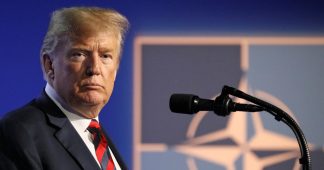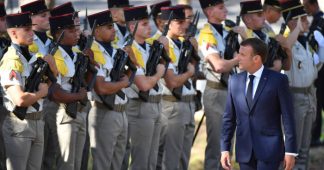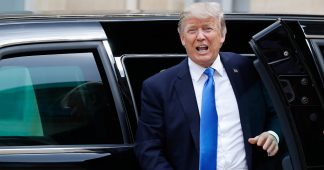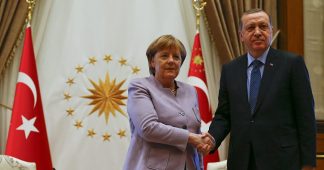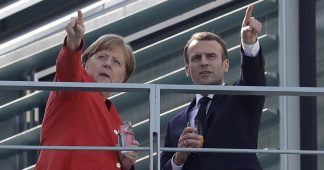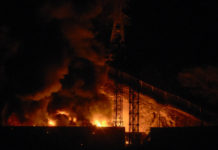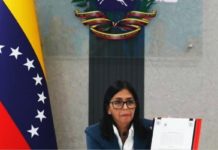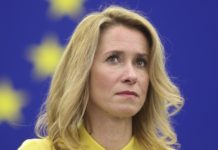This past July, on the final day of the NATO summit in Brussels, Angela Merkel, the German Chancellor, proposed a closed-door emergency meeting. The emergency was Donald Trump. Minutes earlier, the President had arrived late to a session where the Presidents of Ukraine and Georgia were making their case to join NATO. Trump interrupted their presentation and unleashed a verbal assault on the members of the alliance, calling them deadbeats and free riders on American power. Trump threatened to go his “own way” if they didn’t immediately pay more for their own defense. His barrage centered on Merkel, Europe’s longest-serving democratic leader.
“You, Angela,” Trump chided Merkel. Most of NATO’s members had failed to fulfill the goal of spending two per cent of G.D.P. for defense, but Trump focussed on Germany’s military spending of just over one per cent of G.D.P. In front of television cameras the previous day, he had accused Germany of being “totally controlled by Russia,” because of a proposed new gas pipeline. His tweets that day sounded like blackmail. “What good is NATO if Germany is paying Russia billions of dollars for gas and energy? The U.S. is paying for Europe’s protection, then loses billions on Trade. Must pay 2% of GDP IMMEDIATELY, not by 2025.”
Now, with the room cleared of staff, the NATO leaders sat stunned by what one called the “bizarre spectacle” of Trump’s harangue. It fell to another woman, Dalia Grybauskaitė, the President of Lithuania, to defend Merkel. Germany had sent troops to protect Lithuania from Russia, Grybauskaitė pointed out, and Merkel was committed to spending more on NATO’s common defense. The Danish and the Norwegian Prime Ministers also pushed back. In the corner of the room, Merkel strategized with other Europeans about how to stop Trump. Eventually, Mark Rutte, the Prime Minister of the Netherlands, offered the President what he appeared to want most: a way to claim victory. Rutte noted that, since Trump took office, the NATO allies had collectively raised their defense budgets by some seventy billion dollars. Take the win, he urged the President. Trump did just that.
And yet, when he emerged from the meeting and spoke with reporters, Trump lied, claiming not only that his allies had capitulated to him but also that they would consider his demand to raise their annual military spending to four per cent of G.D.P., an assertion so politically impossible that Emmanuel Macron, the President of France, immediately issued a public rebuttal. Trump, of course, went on behaving in his erratic, inexplicable manner. As he left the summit, he interrupted the Chancellor while she was addressing her fellow NATO leaders, and kissed her. “I love this woman,” he said. “Isn’t she great?” A senior German official who told me about that particular Trumpian flourish resisted any attempt at full understanding. “It’s up to psychologists and historians what to make of that,” he said. Four days later, Trump ended his European tour in Helsinki. There, standing next to Vladimir Putin, he spoke with bewildering sympathy for Russian foreign policy, ill-concealed contempt for his NATO partners, and implausible skepticism about his own intelligence services.
Read more at https://www.newyorker.com/magazine/2018/12/24/how-trump-made-war-on-angela-merkel-and-europe
